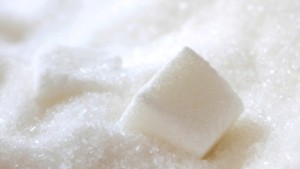How Sugar Is The Skin’s Anti-Ageing Enemy
 For many years, fat was always deemed the body’s enemy but it seems that new research is suggesting that sugar may actually be the blame for much of the damage caused to our skin. Not only does sugar get converted to fat in the body, leading to obesity and high cholesterol, but it is also to blame for insulin resistance, type 2 diabetes, and recently for skin ageing as well.
For many years, fat was always deemed the body’s enemy but it seems that new research is suggesting that sugar may actually be the blame for much of the damage caused to our skin. Not only does sugar get converted to fat in the body, leading to obesity and high cholesterol, but it is also to blame for insulin resistance, type 2 diabetes, and recently for skin ageing as well.
The way in which sugar ages the skin is known as glycation and occurs when excess sugar from the blood stream randomly reacts with collagen, or proteins, and DNA. This leads to the sugar molecules binding with DNA or protein molecules, which results in AGE’s or advanced glycation end products. The chemical bridges which are formed during this process cause problems for internal structures, such as the arteries or gut lining. In addition, it is known to cause age-related memory loss, cataracts and diabetic complications. Recent studies have shown that one of these implications is the lack of collagen fibres in the skin, which results in sagging and lines. The production of AGE’s is linked to the level of glucose in the blood stream – if your blood sugar levels are high, this causes a higher rate of glycation.
Smoking and UV radiation also create this cross linking, as well as by-products of alcohol consumption which produces a higher level of free radicals in the body. The combination of these factors with a high sugar diet will lead to a higher risk of the cross linking problem. There are ways of reducing this risk though, such as giving up smoking, reducing your alcohol intake and increasing the number of antioxidant-rich foods you have in your diet such as fruit and vegetables. Generally, fruit and vegetables with a strong colour will be higher in these health boosting antioxidants.
Refined sugar is largely related to the ageing of the skin, so try to avoid foods such as fizzy drinks, cakes, biscuits and cereals. A nutrient known as carnosine has been proven to inhibit protein and DNA cross linking, which may help to reduce the skin ageing process. Likewise, alpha lipoic acis is a known anti-inflammatory which can help to produce antioxidant-like effects in the skin to reduce ageing.
It is largely advised that in order to maintain a healthy diet, as well as reduce the ageing process, you should limit your sugar intake and swap foods which are rich in the sweet stuff for fruit, vegetables or healthier snacks.

Comments are closed.